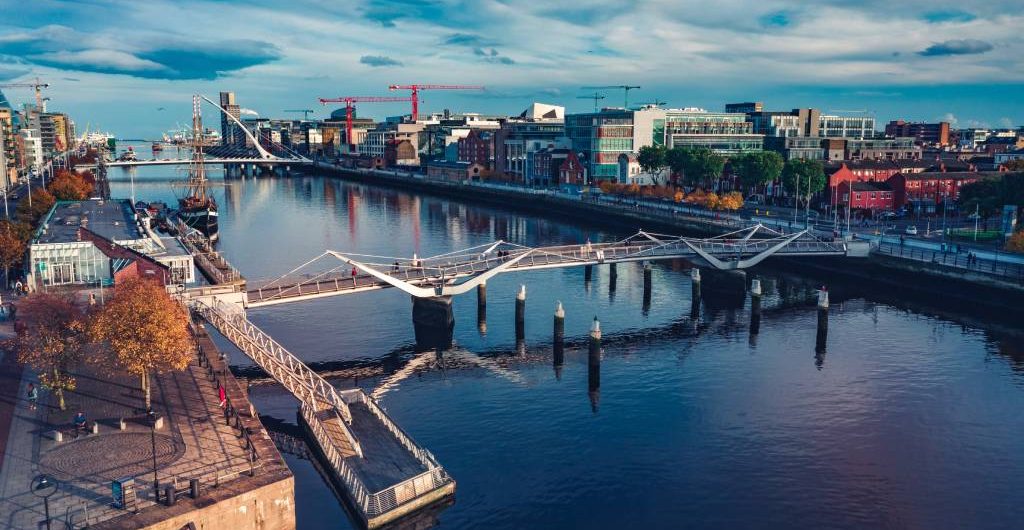
Dublin, the capital city of Ireland, is a vibrant and historic metropolis that holds a significant place in the heart of the Irish people and travelers from around the world. Located on the east coast of the island of Ireland, Dublin is not only the largest city in the country but also a center of culture, history, and modern innovation.
History of Dublin
- Early Settlements: Dublin’s history dates back to its early settlements by Celtic tribes. It was known as “Dubh Linn” in Irish, meaning “black pool,” referring to the dark tidal pool where the River Poddle met the River Liffey.
- Viking and Norman Periods: Dublin was later settled by Vikings in the 9th century and eventually became a major Viking stronghold. It was conquered by the Anglo-Normans in the 12th century, leading to a period of English rule.
- British Rule and Independence: For centuries, Dublin was under British rule, but it played a pivotal role in Ireland’s struggle for independence. The Easter Rising of 1916, a key event in the fight for Irish independence, took place in Dublin.
- 20th Century Developments: In the 20th century, Dublin saw significant modernization and development. It evolved into a bustling, cosmopolitan city while still preserving its rich historical heritage.
Geography and Climate
Dublin is situated on the eastern coast of Ireland, straddling the River Liffey. The city’s proximity to the Irish Sea moderates its climate, resulting in mild winters and relatively cool summers. Dublin is known for its frequent rainfall, which keeps its surroundings lush and green.
Dublin’s Culture and Society
Dublin is a diverse and welcoming city with a mix of cultures and backgrounds. The official languages are English and Irish, reflecting the country’s bilingual heritage. The city boasts a rich cultural scene, including literature, theater, music, and art, with notable contributions from figures like James Joyce and W.B. Yeats.
Landmarks and Attractions
Dublin is brimming with landmarks and attractions that cater to history buffs, art enthusiasts, and tourists alike. Notable sites include Trinity College, home to the famous Book of Kells, Dublin Castle, St. Patrick’s Cathedral, the vibrant Temple Bar District, the Guinness Storehouse, and the expansive Phoenix Park.
Education and Innovation
Dublin is a hub of education and innovation. It’s home to prestigious universities like Trinity College and University College Dublin. The city has also become a European hotspot for tech companies and startups, earning the nickname “Silicon Docks.”
Economy and Industry
The city’s economy is diverse, with sectors such as finance, technology, pharmaceuticals, and tourism playing a significant role. Dublin’s International Financial Services Centre (IFSC) is a vital part of the financial industry in Europe.
Transportation and Infrastructure
Dublin offers an extensive public transportation network, including buses, trams, and a suburban rail system. The city is well-connected by road and boasts several ports and Dublin Airport, providing international travel options.
Local Cuisine and Food
Dublin is a culinary delight, offering a mix of traditional Irish dishes and modern cuisine. Don’t miss trying classics like Irish stew, fish and chips, and the iconic Dublin coddle. Pubs are an integral part of the dining culture, where you can enjoy hearty meals and live music.
Events and Festivals
Throughout the year, Dublin hosts a variety of events and festivals. St. Patrick’s Day Parade is a world-famous celebration of Irish culture. The Dublin International Film Festival and Dublin Fringe Festival showcase the city’s vibrant arts scene.